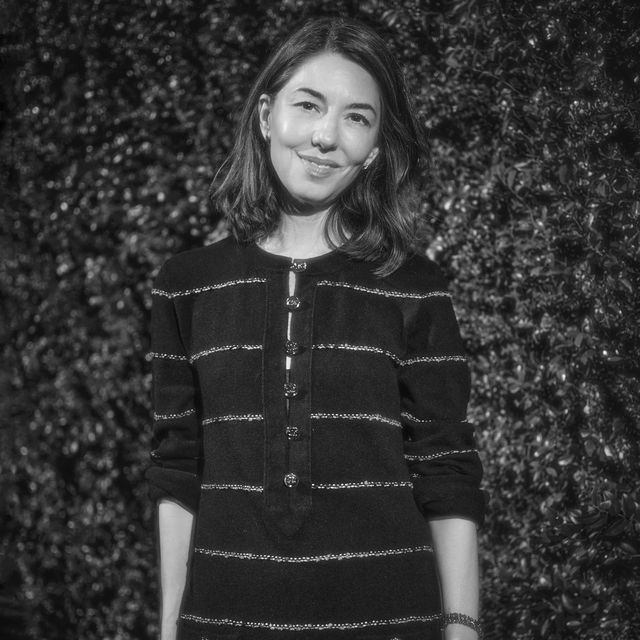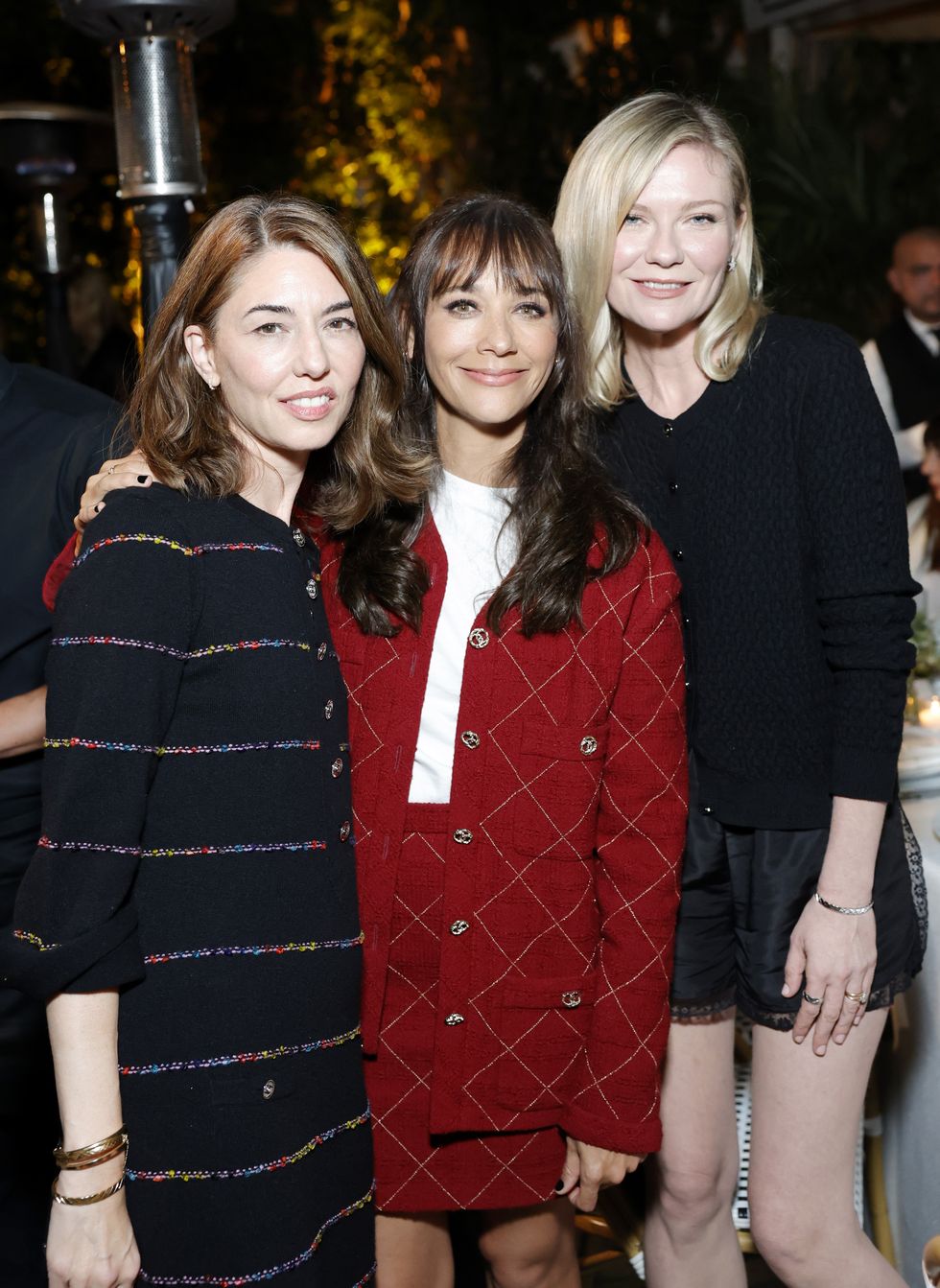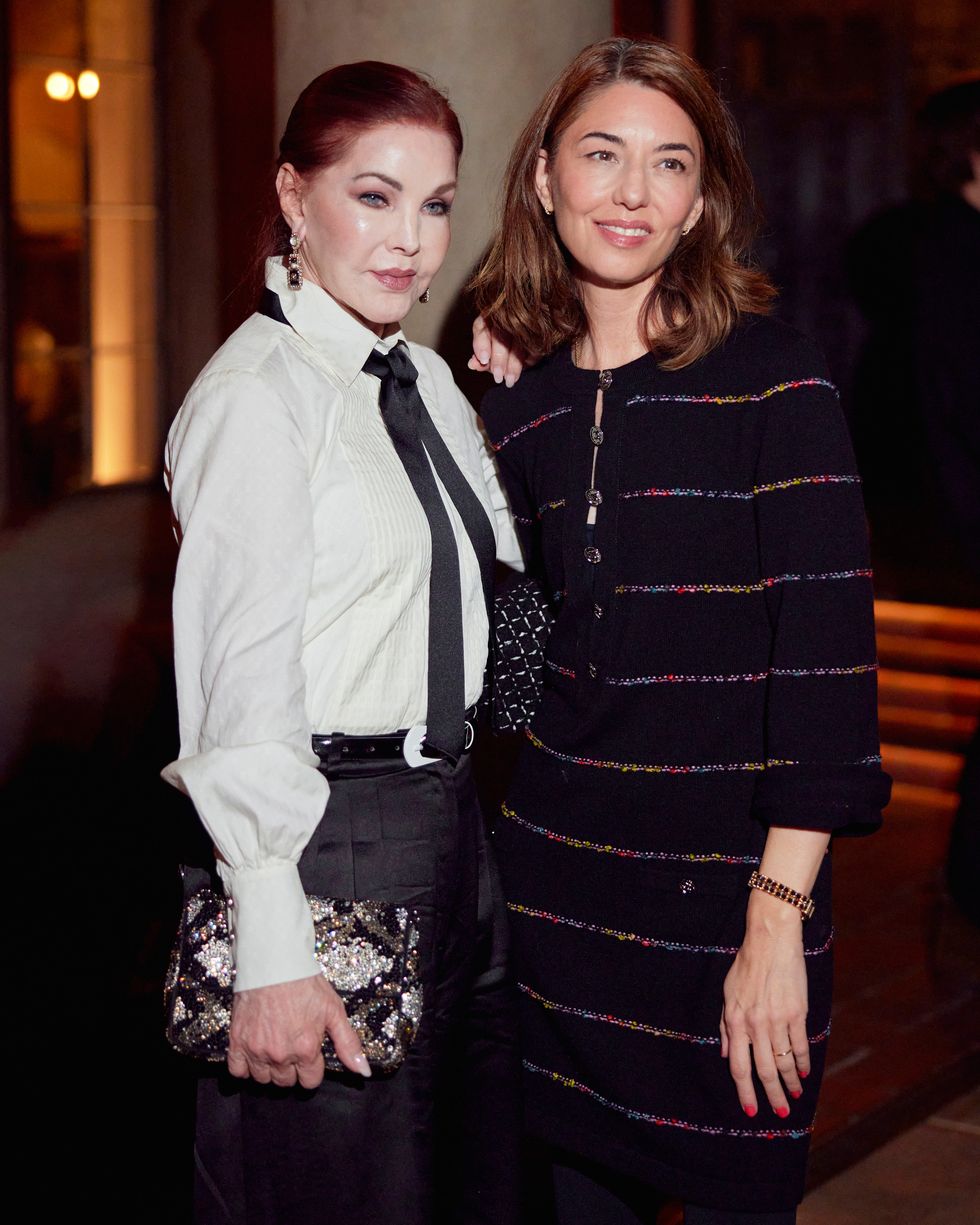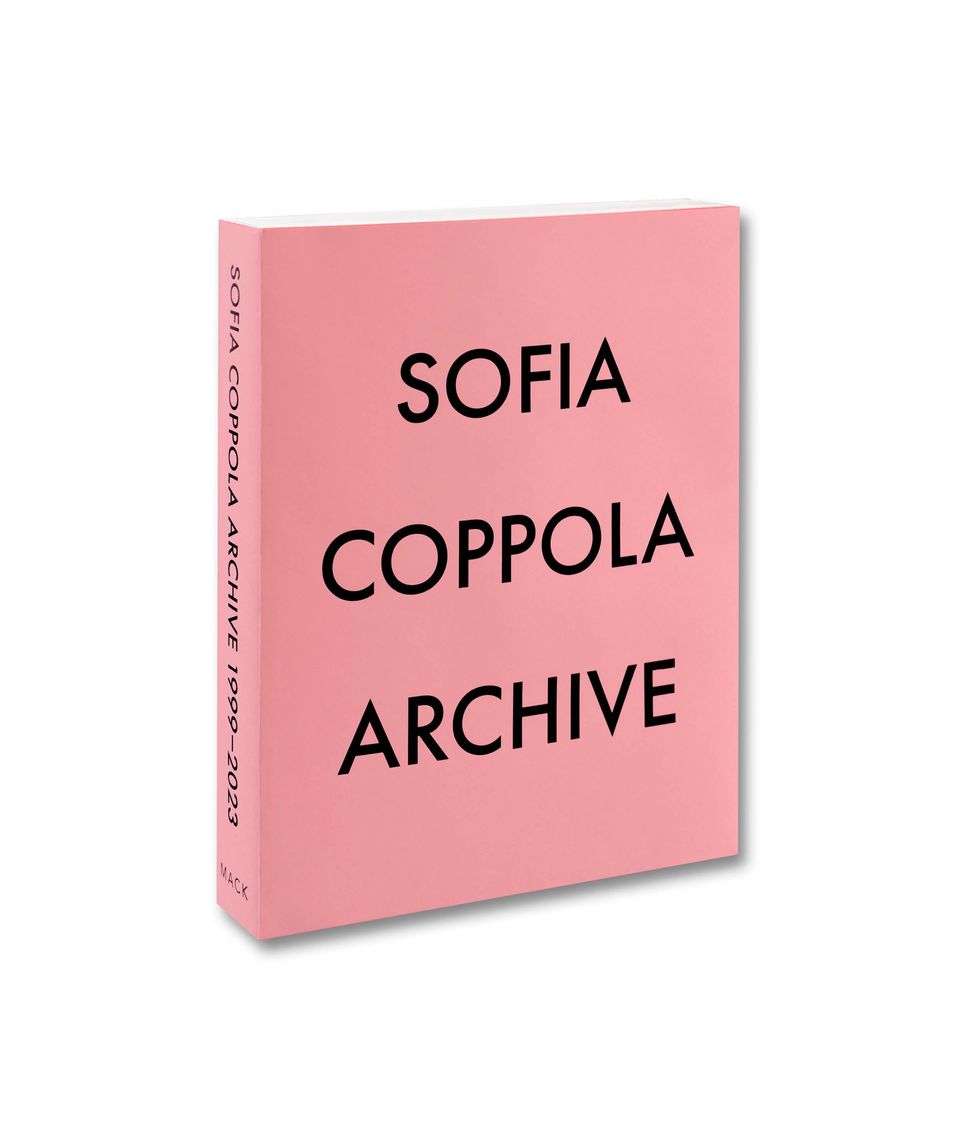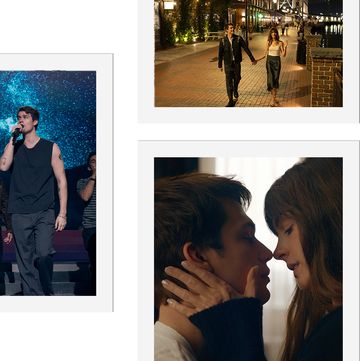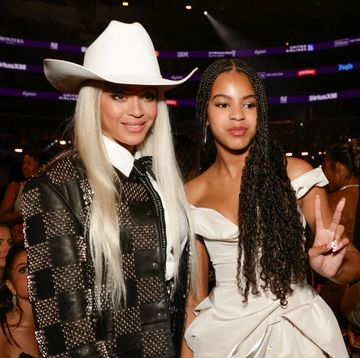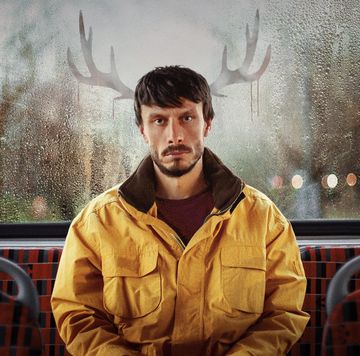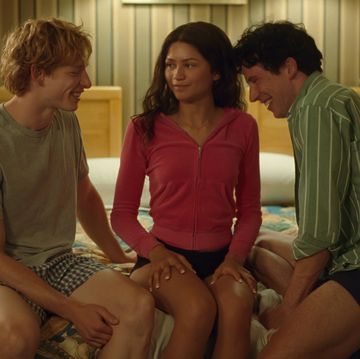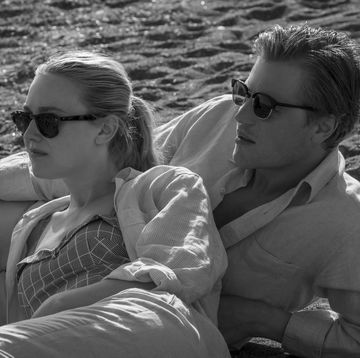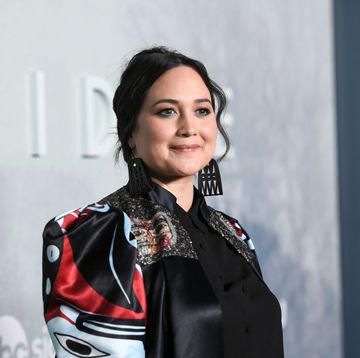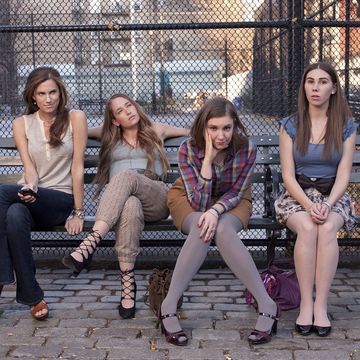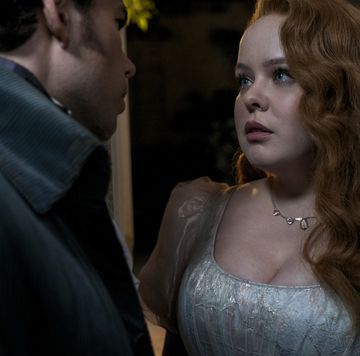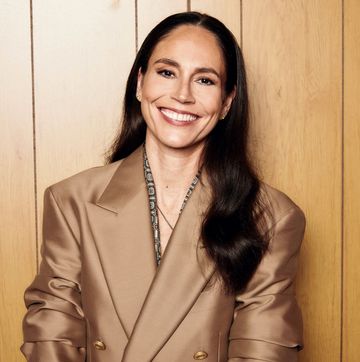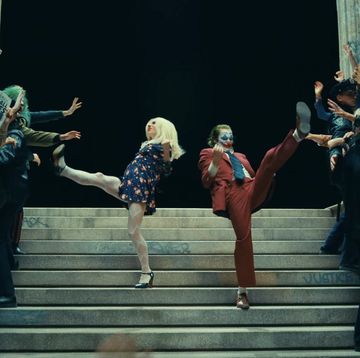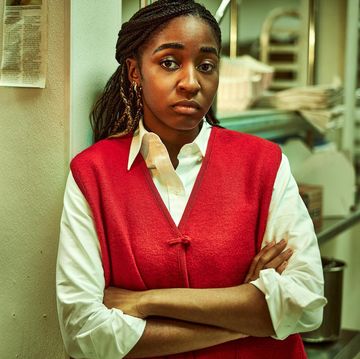By Sofia Coppola’s standards, almost anything can become an archive. A film. A person’s memory. A place that appears to be frozen in time. Returning to West Hollywood’s Chateau Marmont more than a decade after shooting Somewhere there—the 2010 film starring Elle Fanning, based on the director’s relationship with her father, cinema legend Francis Ford Coppola—she says the nearly 95-year-old hotel feels like a time capsule. Coppola, however, is here because of a more traditional archive. Chanel is hosting a dinner in celebration of her first book, Sofia Coppola Archive 1999–2023 (Mack, available to order now)—a true collection of some of the most precious artifacts from her body of work.
“I never set out to create an archive per se,” Coppola tells Harper’s Bazaar. “It just happened very organically over the years. And by that I mean, I filled a lot of storage containers during the development of each movie and didn’t sort through them again for a very long time.” Packets of one-hour photos from on set in Japan. Heavily annotated scripts. Sketches. Mood boards. Reference material. Handwritten musings about what each movie might become. Boxes full of priceless ephemera from each of her films collected dust—until she took some time during the pandemic to dip back into the archives and decided to share her findings.
The celebration at Chateau Mormont was like being in the real-life Sofia Coppola Cinematic Universe. Kirsten Dunst, Elle Fanning, Priscilla Presley, and countless others gathered in the hotel’s leafy courtyard, all outfitted in Chanel. Many of the faces here can be found in Coppola’s 488-page Archive—Polaroids and candid film photos of the cast and crew from The Virgin Suicides, Marie Antoinette, and Lost in Translation.
“I really love Corinne Day’s photographs that she took on Virgin Suicides. I was so happy to find those packed away and include them [in the book]. It was like peering back into what that little world was like at the time,” Coppola says. “I was less excited to share my personal notes and messy handwriting with the world. It’s a little embarrassing, but messiness is part of the process. It’s really special to show how a scribble on a hotel notepad can become a feature film.”
The book opens with an interview of Coppola by journalist Lynn Hirschberg, in which the Oscar-winning writer and director reflects on the entirety of her body of work, noting that many of her films were considered failures at first, their cult followings only growing over time. “I was raised with the idea of auteurism, of having a distinct point of view,” Coppola tells Hirschberg. “And I still believe that is how you become an artist. What’s the whole point of doing a movie unless it’s something that only you could make?”
The Virgin Suicides (1999) was her entry point into the hearts of teen girls for generations to come. Lost in Translation (2003), the first original script she’d ever written and directed, is the film she believes got the film world to take her seriously. (It won the Academy Award for Best Original Screenplay.) 2006’s Marie Antoinette was her “‘make whatever you want next’ ticket” after Lost in Translation. What role will Coppola’s next film, Priscilla, play?
Based on the memoir Elvis and Me, the film centers how Priscilla Presley experienced her relationship with the King of Rock and Roll, which began when she was 14 years old and he was 24. “When there’s such a strong public narrative about something for such a long time, sitting with someone else’s emotional truth around that story can help reshape the ways we understand it and understand the past,” Coppola says. “I was just concerned about doing Priscilla’s story justice. Her point of view was the most important thing.” Although it will not be released in the U.S. until November 3, the film, starring Cailee Spaeny and Jacob Elordi, features prominently in the book.
While Coppola doesn’t reveal much about the inner workings of the development and production of her films, a certain vulnerability does shine through. Like a pleading note to Bill Murry, asking him to be the romantic lead in Lost in Translation (“… you are the only one I want to make this with …”) or the faintly highlighted passages of her copy of Jeffrey Eugenides’s The Virgin Suicides, the novelist’s 1993 debut. You realize it is just as much an archive of Coppola’s body of work as it is a witnessing of her maturation as both a person and filmmaker.
“Making a movie can feel like such a mystifying process to the outside world—and even to you, while you’re making it—so I hoped [this book] might provide some kind of insight into how a film gets from point A to point B,” Coppola says. “Hopefully, it might inspire someone to see that process through.”
